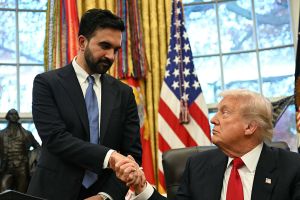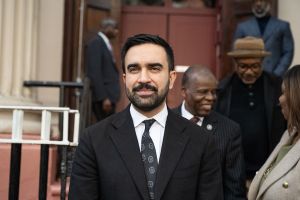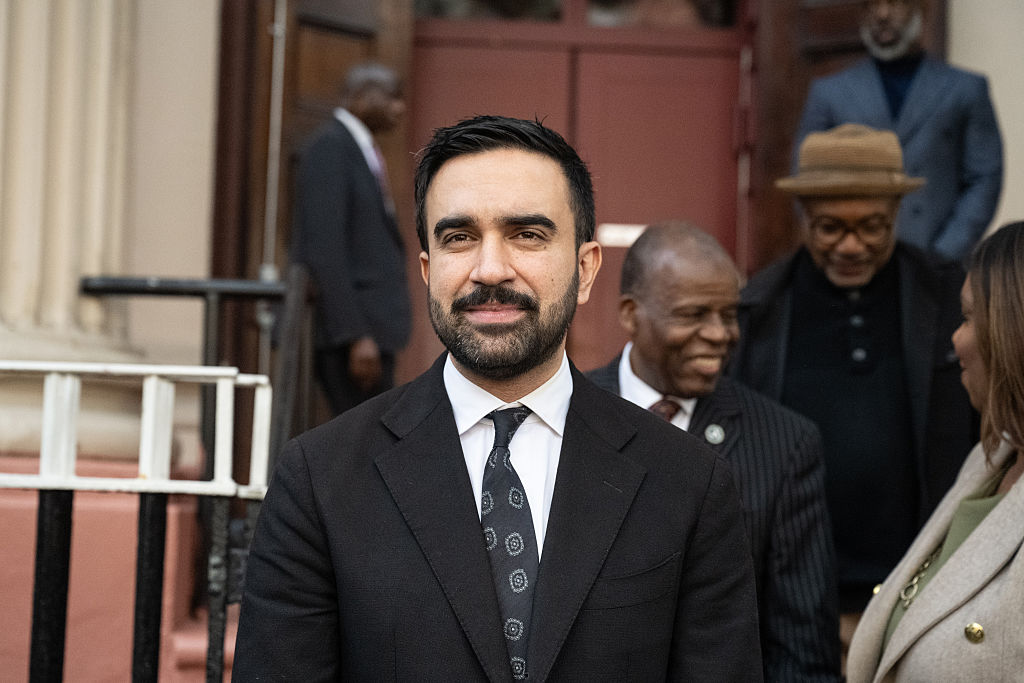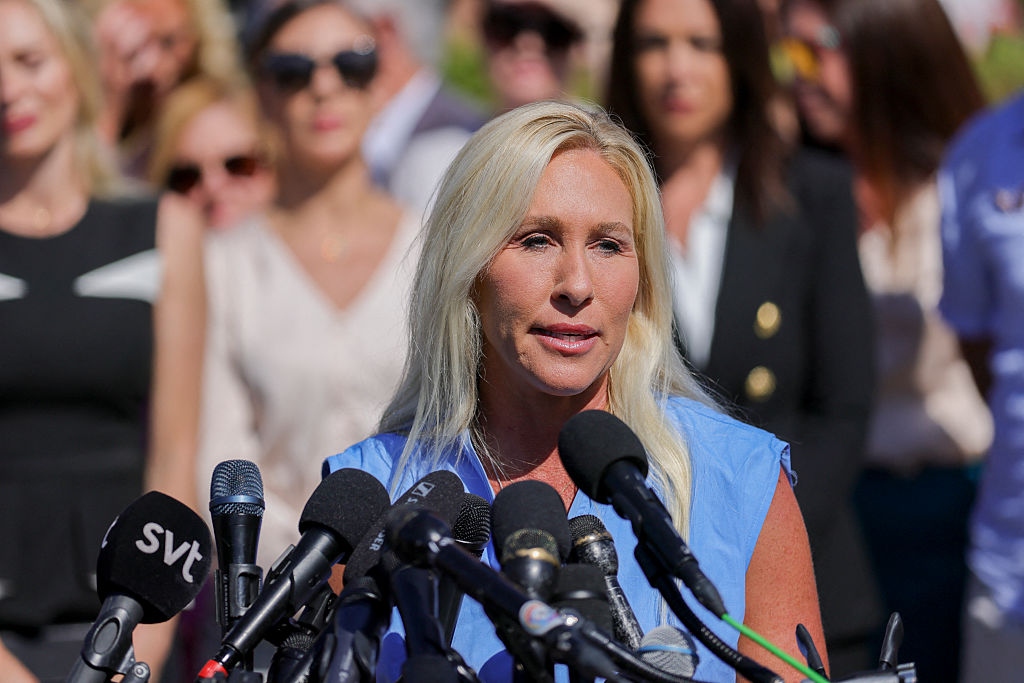Britain’s post colonial reckoning can be summed up in a single sentence delivered last June at the Glastonbury music festival when rapper duo Bob Vylan shouted “You want your country back? You’re not getting it back!” to an overwhelmingly white, middle-class audience roaring its approval. The message was unmistakable: Britain has been colonized – and its dominant culture not only accepts, but celebrates, it.
Britain’s transformation has been driven not by invasion, but by invitation. The country’s population, political culture and national cohesion has been radically reshaped by immigration – one wave in the 1950s, driven by post-World War Two labor shortages, and another following Brexit. They brought an estimated 10-15 million immigrants, primarily from Africa and South Asia.
And the more recent surge of what the British euphemistically call “irregular migration,” that is in fact illegal immigration, has only deepened the challenges.
But the immigration debate is no longer simply about “uncontrolled” migration. The deeper threat lies in what legal immigration from certain regions has produced: reverse imperialism.
After World War Two, Western colonial empires were dismantled, and their histories of economic exploitation, cultural dominance and political control were broadly condemned. It was hoped that the post-colonial world would look very different. But history is ironic. The racial superiority of the British raj has been replaced by the moral and religious supremacism of its Muslim population.
The flow of migrants today, particularly from former colonies to their former colonizers, has initiated not a new chapter in diversity, but a quiet conquest by demographic, cultural and political means while Britain’s elites, paralyzed by guilt and progressive dogma, have permitted the erosion of core values in the name of multiculturalism.
Legal immigration during both postwar periods has significantly increased the UK’s Muslim population – from negligible levels in 1950 to almost seven percent of the population today. But numbers alone don’t tell the whole story. In urban centers like Bradford and Tower Hamlets, their numbers are concentrated, climbing to over 35-40 percent in some neighborhoods.
These are not merely demographic shifts but cultural. Increased levels of welfare dependency and low levels of female workforce participation in these enclaves – often influenced by cultural and religious values – have raised concerns about an extraction of state resources without corresponding integration. To some critics, this dynamic resembles a kind of “reverse imperialism.”
Muslim concentration in cities also translates into political power – from “sharia councils” as well as power reshaping local elections, influencing national policy and asserting itself most clearly within the Labour party.
Let us clarify: Not all Muslims are Islamists. But those who are do not merely reject integration; they actively seek the transformation of their host society. Dawah (religious outreach) funded by zakat (charity), as well as political organizations are used to embed Islamist ideals within public institutions – from schools to local governments and even Parliament itself. This is reverse imperialism – not by armies, but by slow, deliberate cultural and institutional conquest.
Britain’s robust protections for freedom of speech and religion have been turned into shields for anti-assimilationist movements. Public displays of Islamic religiosity – mass prayers staged in Whitehall and along Tower Bridge, for instance – are not mere cultural expressions. They are demonstrations of societal power.
Similarly, protests purportedly against the war in Gaza increasingly reveal themselves as anti-Israel, even anti-Semitic. The normalized antisemitism in parts of the Islamic world has quietly embedded itself in Britain’s urban centers and beyond. Consider the British-Palestinian NHS doctor in bucolic Gloucestershire, genuinely stunned to be arrested in October 2025 for hate speech and pro-Hamas posts – as if her deeply held belief in Islamist moral superiority should have granted her immunity. Its presence is most visible in double standards: pro-Palestinian marches in London receive full police protection, while pro-Israel rallies often proceed with minimal security – or none at all.
And while violence is the most visible symptom, the intellectual and political conquest is quieter but no less potent. Even the once-iconic Oxford Union has become a stage for extremist voices. Far from challenging Islamist ideology, elite British institutions are increasingly complicit in legitimizing it.
Underlying this societal vulnerability are two postwar developments that have hollowed out British resilience.
First, Britain has become a post-Christian society. In 1950, 85 percent identified as Christian. In 2025, that number has collapsed to 46 percent. Second, pacifism has replaced patriotism. British youth, increasingly disconnected from national history or pride, express little willingness to defend their country. An Ipsos poll in April 2025 reported that 48 percent said they would not fight for Britain “under any circumstance.” A society that no longer believes in itself is easy to replace.
Britain’s leaders have offered not resistance, but accommodation – and in doing so, they’ve allowed the institutions of state and society to be gradually reshaped in the image of their most assertive minority factions. These factors are not, as yet, visible in America.
Many Americans assume that Britain’s postcolonial dilemmas don’t apply here. After all, the US never had colonies in the same sense. Our national reckoning has focused on slavery and civil rights – not empire. But this is a dangerous misconception.
The United States has long defined itself not by “blood”, but by allegiance to a common set of civic values. But Arthur Schlesinger’s The Disuniting of America, emphasized that unity depended on assimilation – on the willingness to become Americans.
Today, that process is under threat. Consider Dearborn, Michigan, where the Muslim mayor unapologetically declared a Christian pastor “unwelcome” after he objected to renaming a road after a known Hamas supporter. This is not an isolated event but reflects a broader trend: the emergence of parallel societies with different values and civic loyalties.
America’s constitutional protections – especially of religion and speech – may ironically be accelerating this process. Foreign flags now fly at US protests. Demonstrators chant for causes antithetical to the American creed. These aren’t just calls for global solidarity – they signal a growing rejection of national unity itself.
Britain is a cautionary tale, not just about immigration policy, but about “cultural surrender.” The postcolonial legacy has produced fragmentation, the rise of groups with a supremacist agenda resisting integration and a populist backlash. But even populism may come too late if a nation’s sense of self has already withered.
Trump understands this. His administration’s efforts to redefine immigration, restore assimilation and reassert national identity mark a sharp contrast with Britain’s passivity.
But a course correction requires more than political leadership. It requires that Americans confront what the British have already endured: that legal immigration absent assimilation can be a mechanism not of enrichment but of replacement, even subjugation.
Britain’s reversal of empire and identity is well underway. It’s time we learned from those who failed to prevent it.


























Leave a Reply